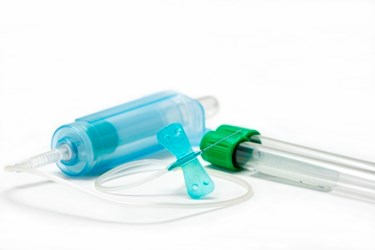Report: M&As Power Record-Breaking First Half Of 2015 For Medtech

A new report by EP Vantage indicates that the dust has settled after the past year’s big changes in the medtech sector, which saw the market share shift among the industry’s biggest names. The report also showed dangerously low levels of available venture capital, especially among smaller start-ups, while the FDA is approving more new devices than it has in over a decade.
According to the report, the medtech industry scarcely looks the same as it did six months ago, let alone a year. Most notably, Medtronic, with its $50 billion deal to purchase Covidien, has edged out Johnson & Johnson to take the largest market share of medical devices.
Overall, the first half of 2015 has been conservative in terms of mergers and acquisitions (M&As), with only 86 deals inked so far this year. However, what the M&As lack in numbers, they make up for in size: The 86 deals are worth over $83 billion.
“At $83 billion, this total is greater than that for any six-month period — and, incredibly, any full-year period — ever. It also puts 2015 on track to break the $100 billion barrier in terms of the total value of mergers closed,” said EP Vantage authors.
The report notes two “megadeals” of recent months: St. Jude’s forthcoming purchase of Thoratec for $3.4 billion, and IBM snatching up Merge Healthcare for $1 billion. The report’s authors assured that these deals are motivated more by technology and innovation than they are by “simply bulking up for corporate purposes or to obtain lower tax rates.”
Elizabeth Cairns, EP Vantage medtech reporter, said in a press release that the industry is showing signs of leveling off.
“With the huge and exciting changes that have gripped the industry over the past year having for the most part been brought to their respective conclusions,” said Cairns, “the sector seems to have attained a level of stability.”
But that calm may turn stagnant, warns report authors. They are concerned about the scarcity of venture capital among medtech startups, some of whom are looking toward unconventional methods of fundraising, such as crowd sourcing, to push their innovations closer to the clinical trial stage.
An Emergo Group report released in January ranked funding and capital as the number one concern among executives of small companies. While venture financing has always been a concern in medtech, the situation could be more dire than originally expected, as just $1.6 billion has been raised in the first part of the year, the lowest amount since 2006, according to the EP Vantage authors.
Despite the slowdown in early investment, new devices are coming to the market at the quickest rate in a decade. EP Vantage credits the FDA commitment to speeding up its regulatory process and reports that 26 devices have already been approved this year. If this rate continues, the FDA could approve 52 devices this year, a 43 percent increase over 2013.
Cairns warned that the approval rate would not continue, though, unless something is done to improve the funding for new innovations.
“Start-ups are facing a worsening funding gap,” said Cairns. “It will be crucial that this eases if a steady flow of safe and effective medical technologies is to be maintained.”
